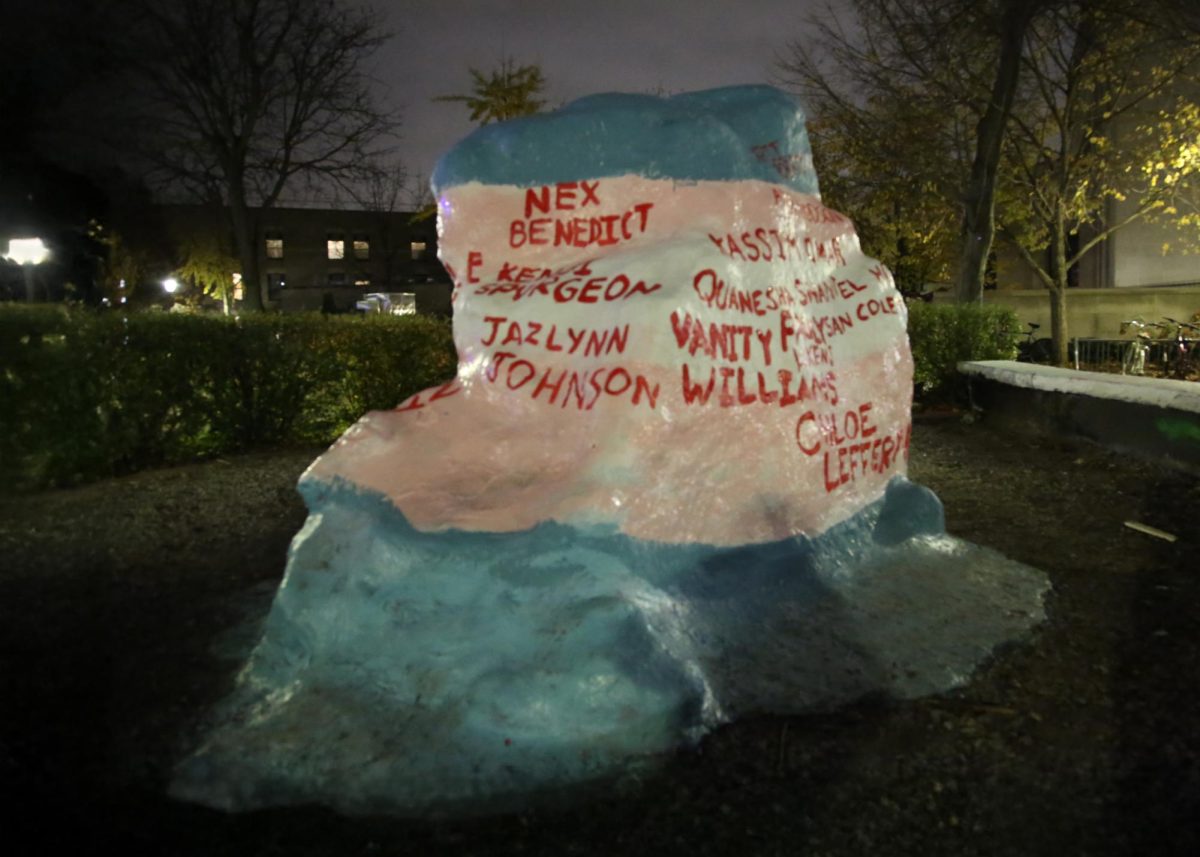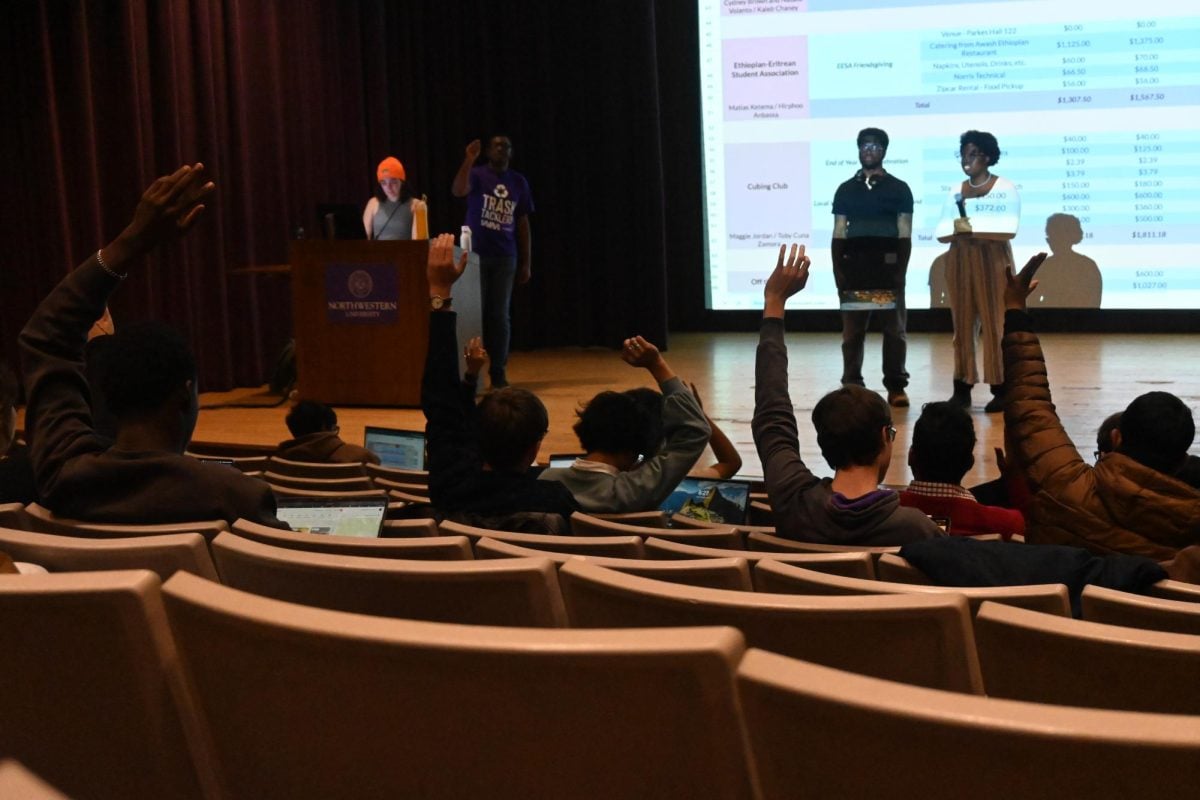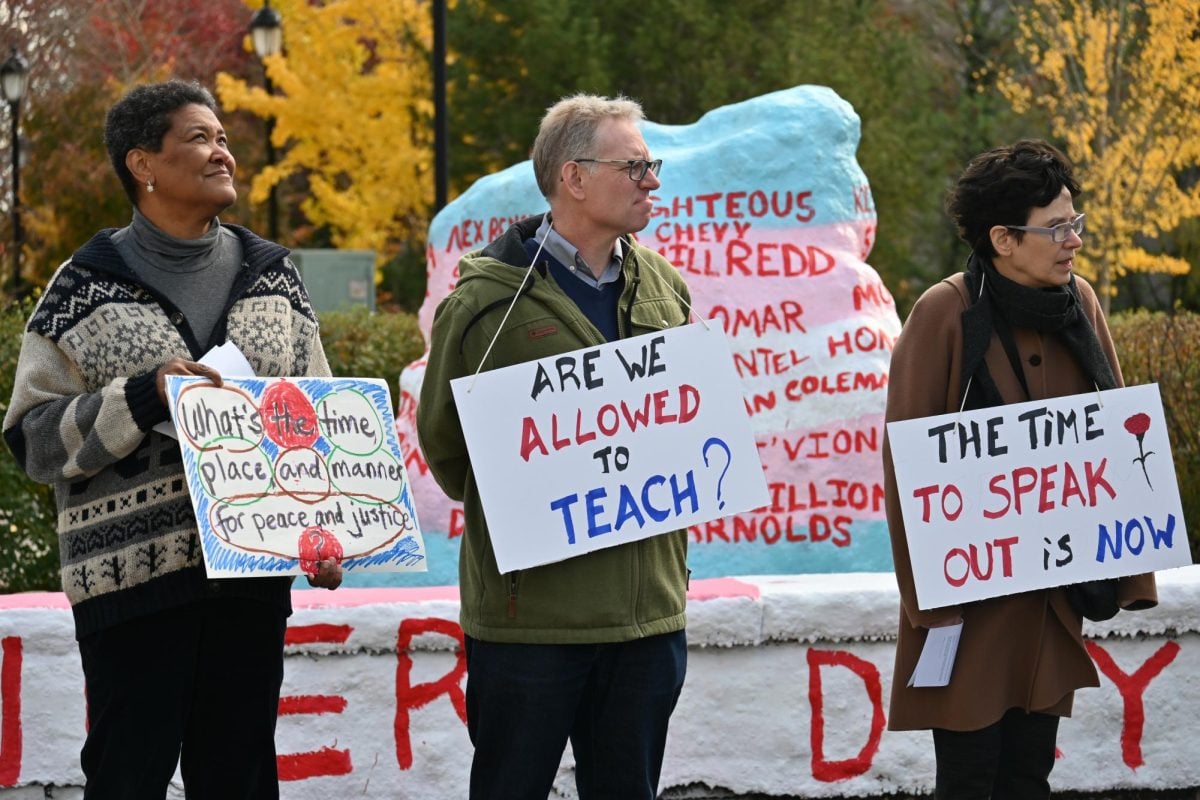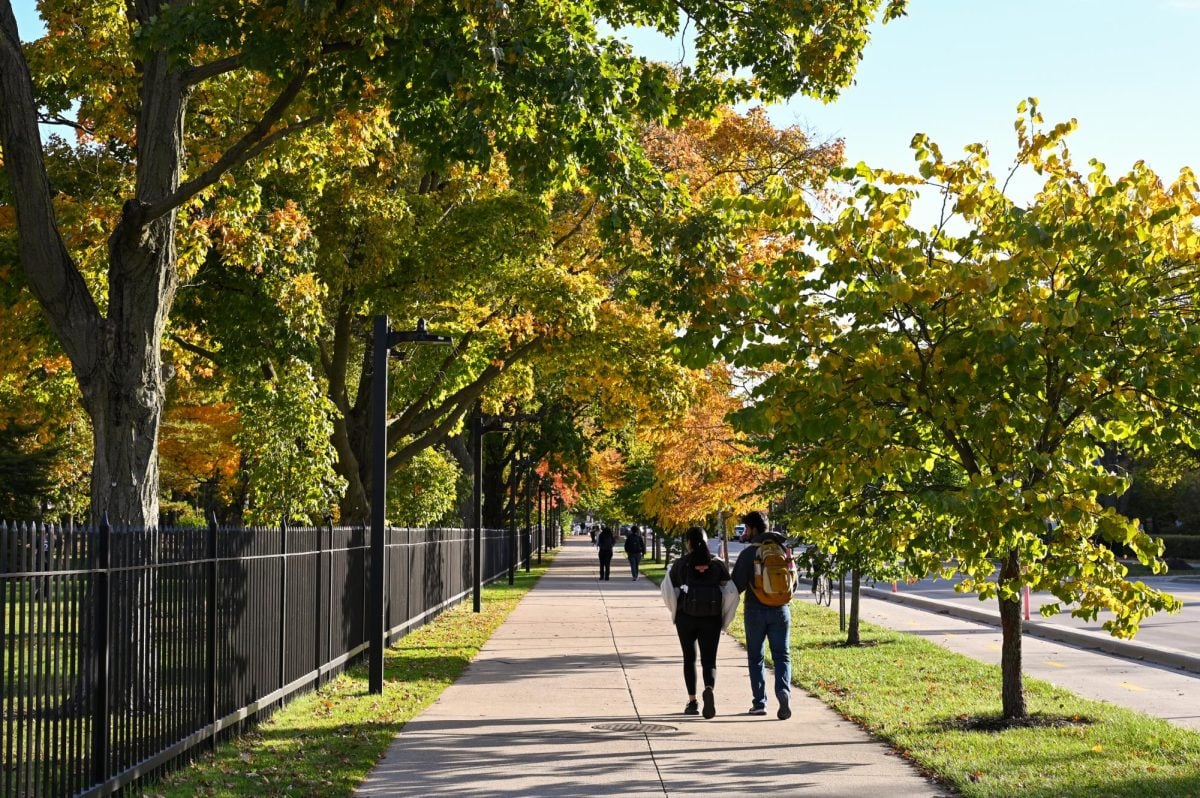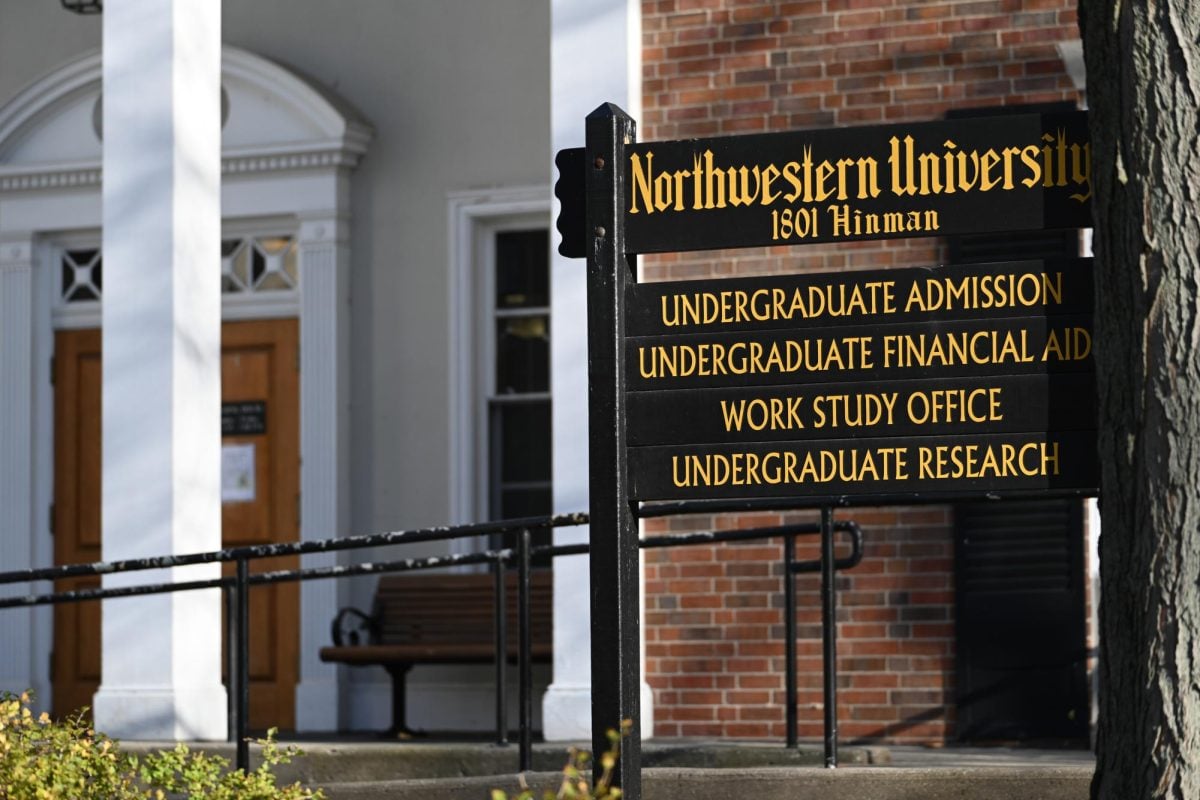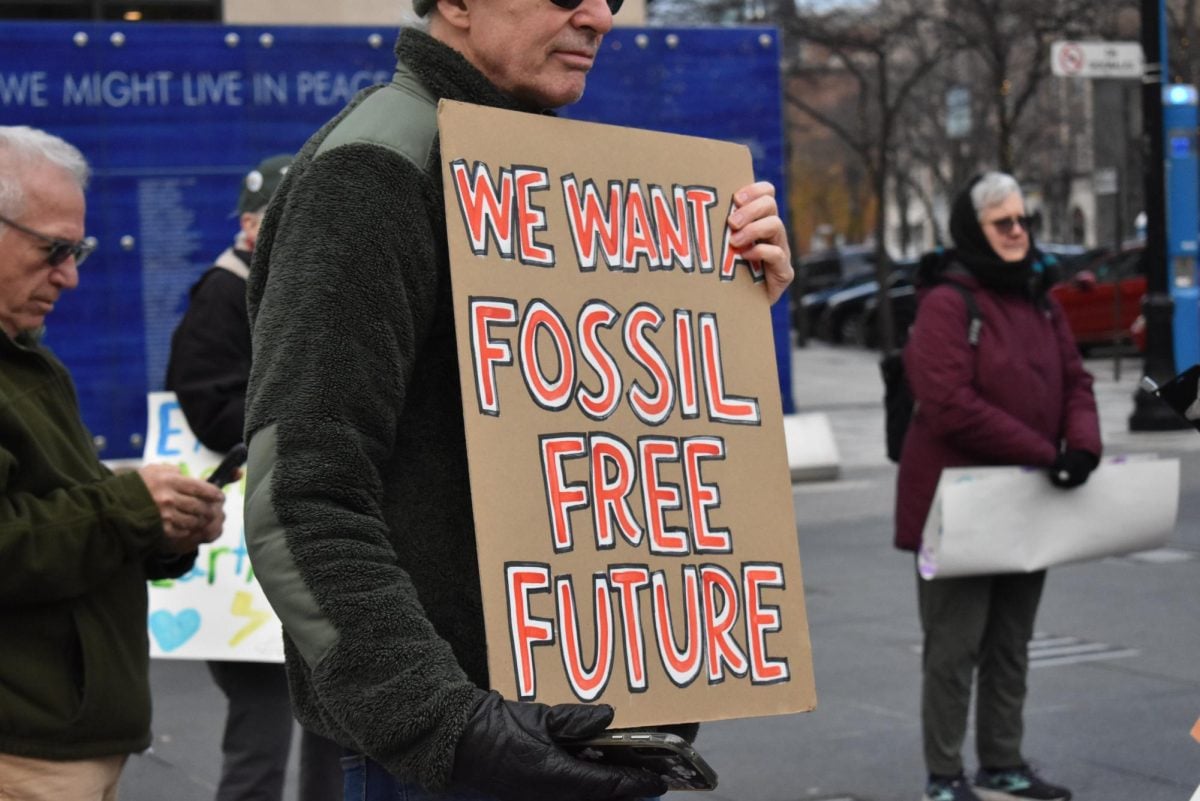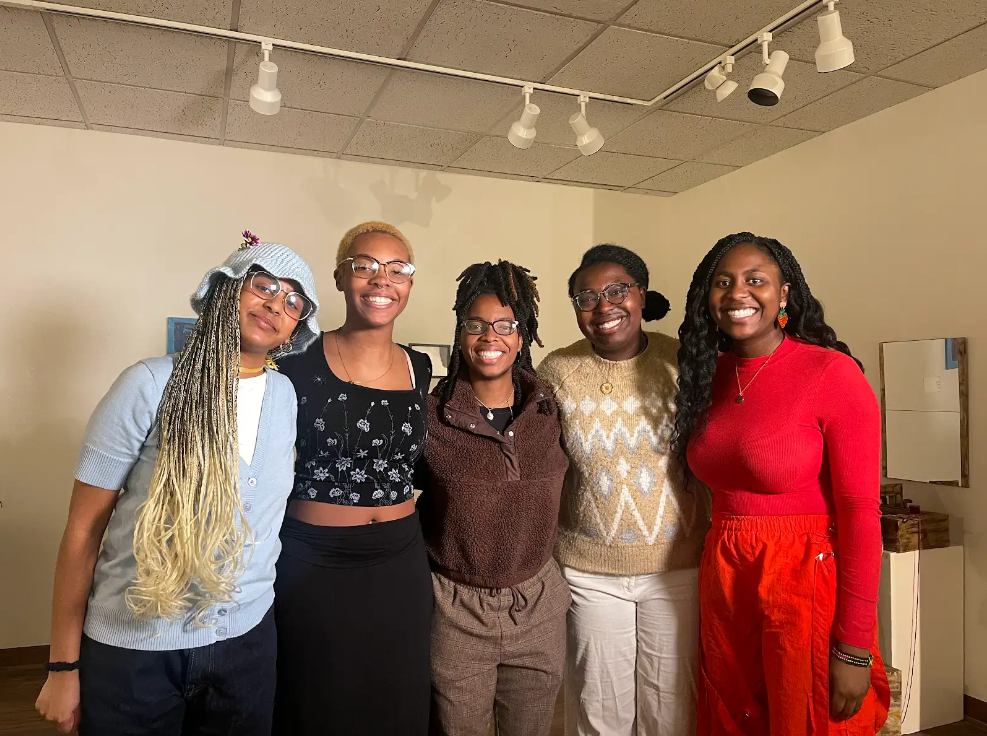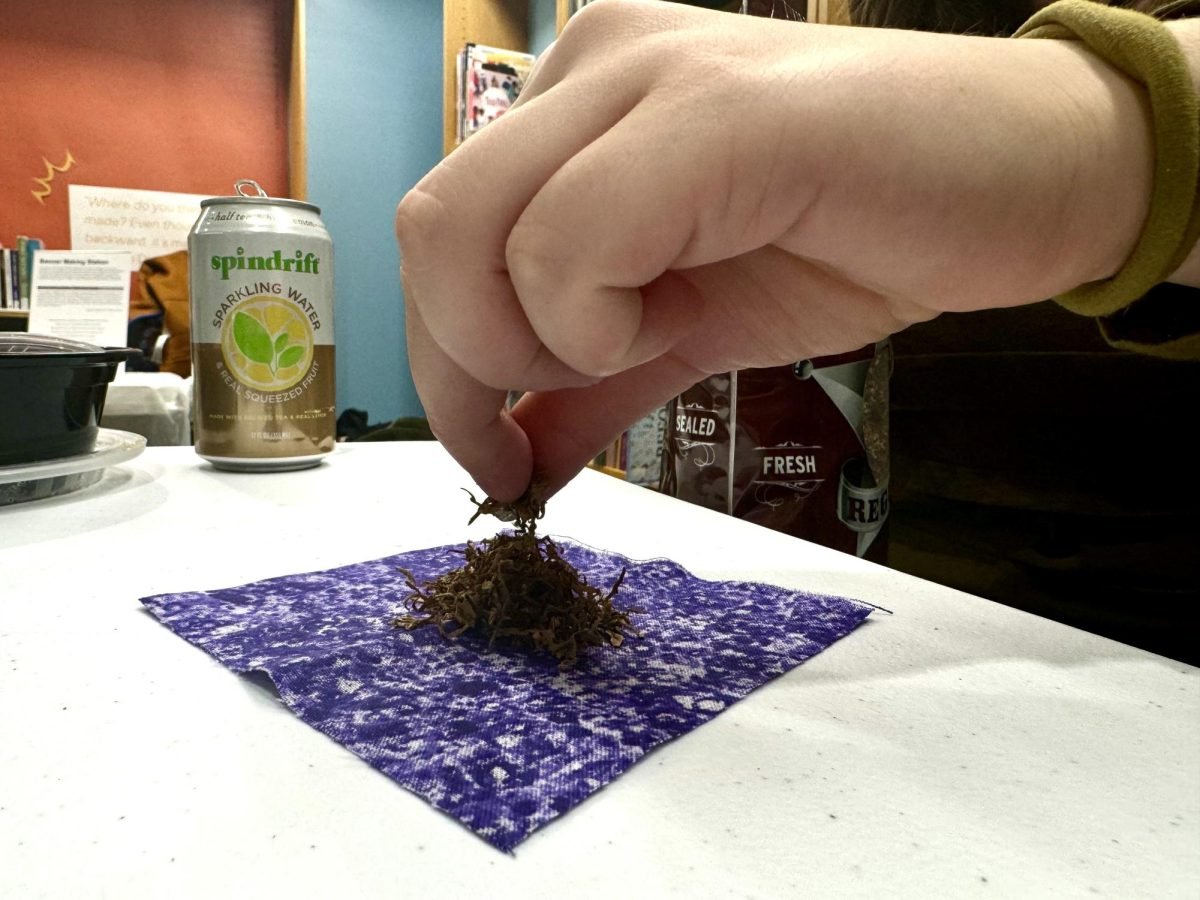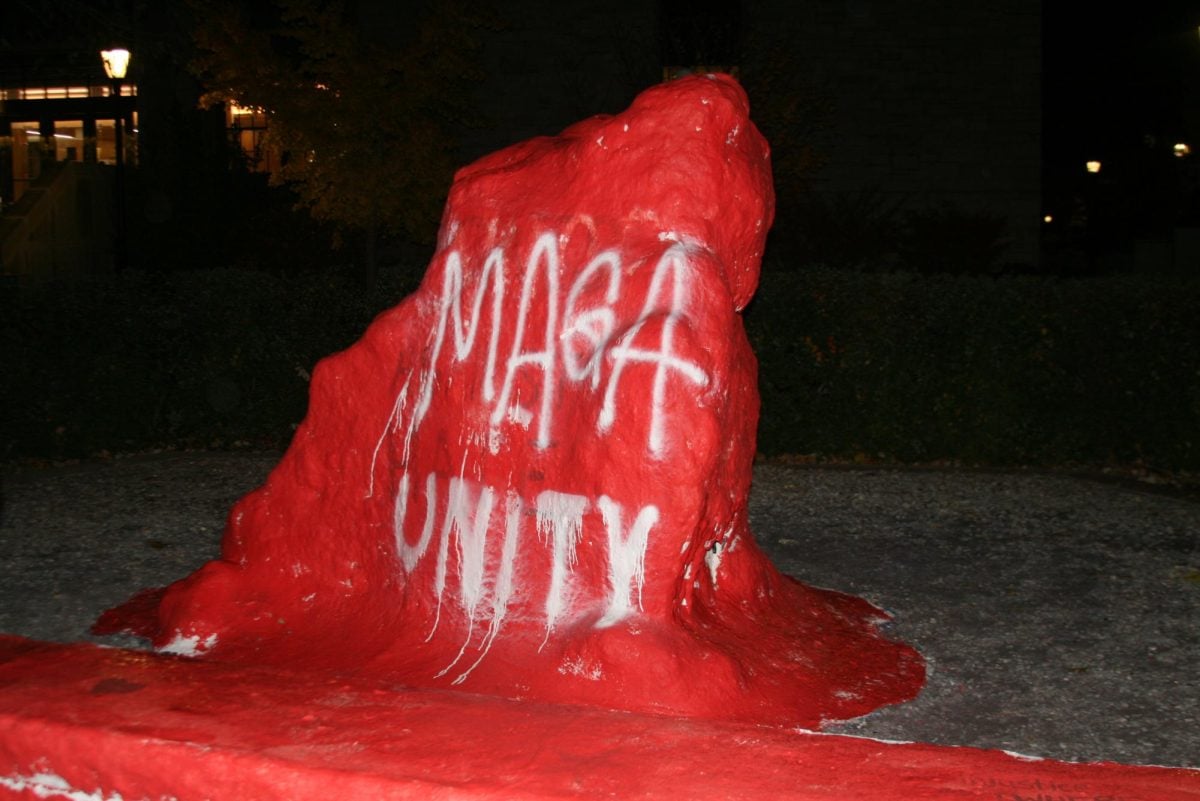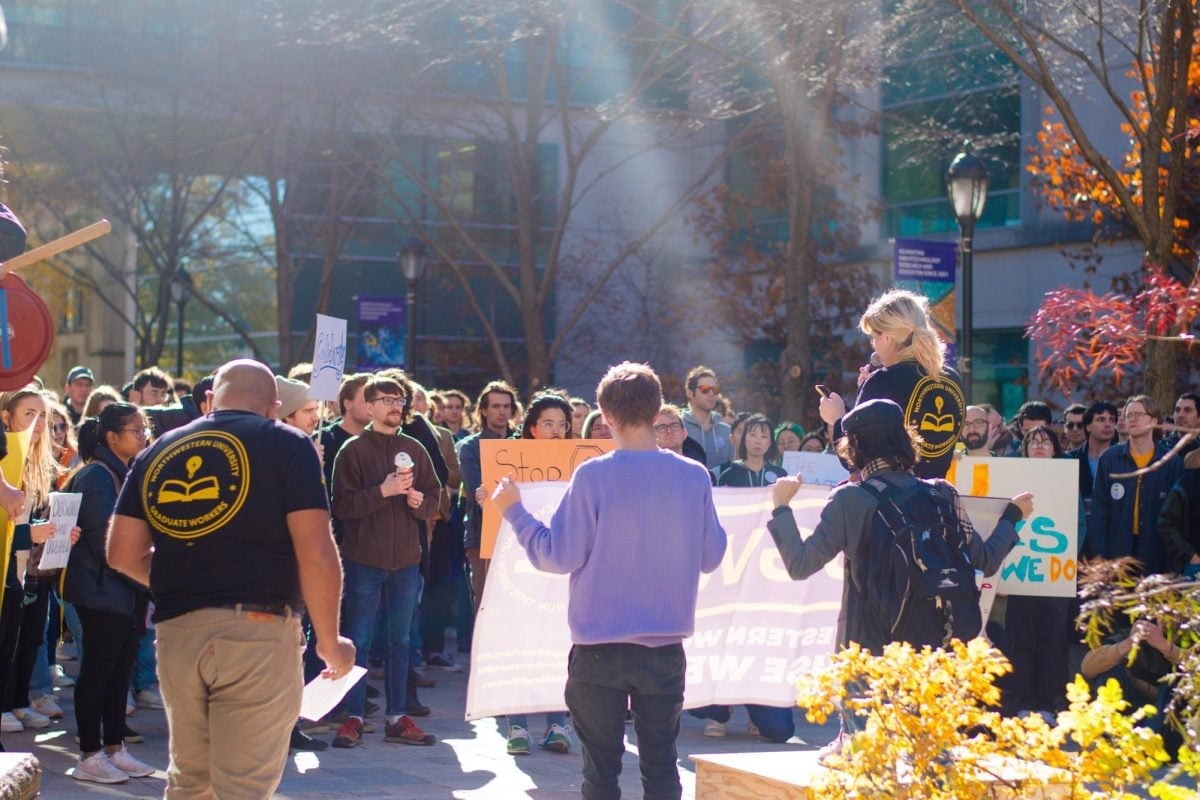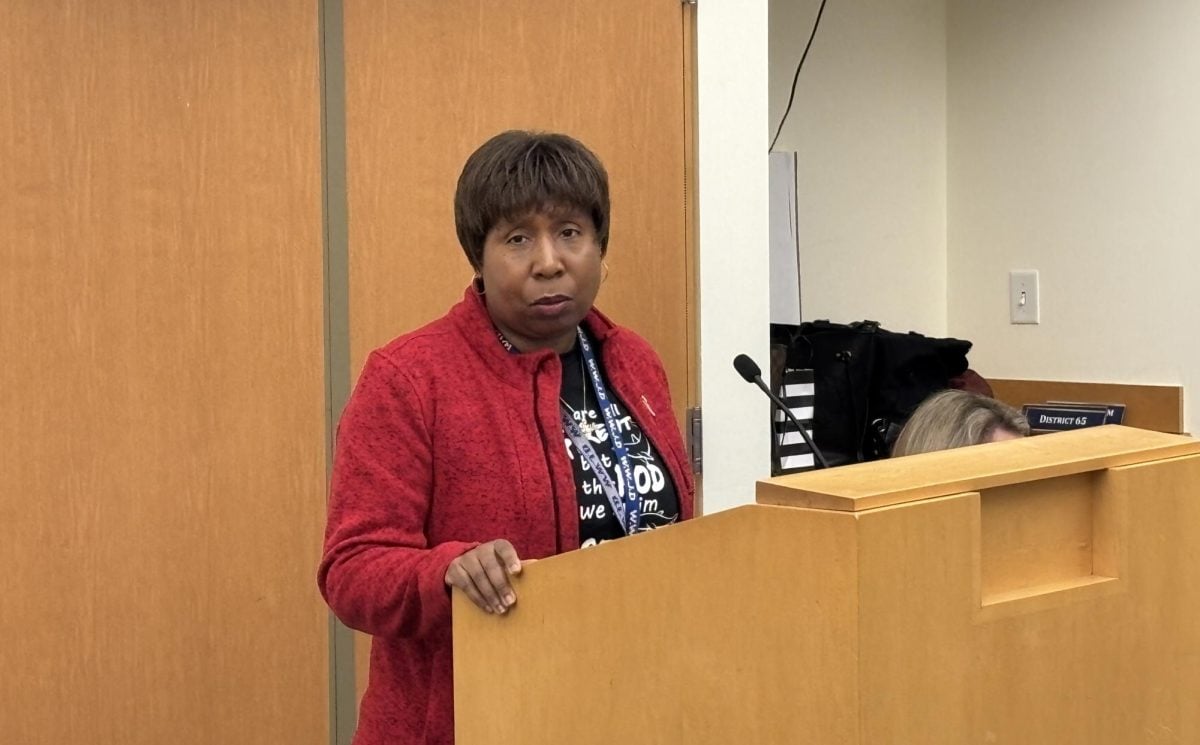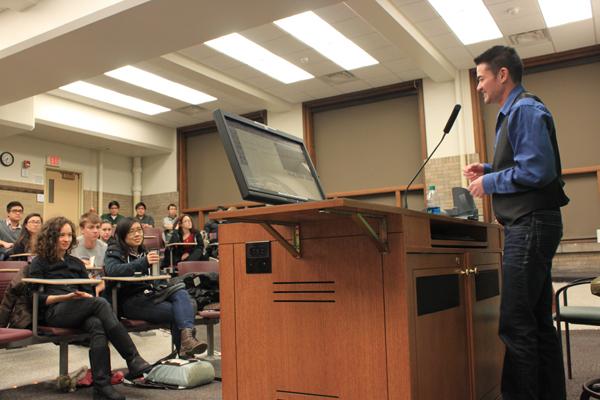
Thomas Beatie is known by the media as “the world’s first pregnant man.”
But it is more than just the pregnancy that has shaped his experiences, he said. It’s that some hospitals labeled him as the mother on his children’s birth certificates. It’s that his father, with whom Beatie developed a strained relationship after his decision to undergo a female to male change, recently referred to Beatie as “his son” for the first time. It’s the memory of his first semblance of facial hair; how he felt his muscles respond to injections of testosterone; being addressed as “sir” in the grocery store.
Beatie came to Swift Hall on Saturday night and encouraged an audience of more than 50 people to “define normal for themselves.” Kaibigan, Northwestern’s Filipino cultural group, invited Beatie, who is one-fourth Filipino, to speak as part of their Fil*Anthrophy series, during which they dedicate their fundraisers to a specific cause. This event’s proceeds went to Believe International, a non-profit that provides education to disadvantaged youth in the Philippines.
“His story is very unique in that he was so true to himself,” said Kaibigan co-president and Weinberg junior Angelica Cabrera. “I was empowered and inspired by his story, and hopefully it will spark new conversations among the Northwestern community.”
Beatie, who attracted the attention of Oprah Winfrey and other prominent media after he became pregnant by artificial insemination, has since become a reproductive rights and LGBT activist although he continues to face legal implications.
He recently filed for divorce from his wife Nancy, but the Arizona judge in the case could not decide whether the marriage was valid. He questioned whether Beatie should be classified as a male or female and therefore deemed the marriage a possible domestic partnership.
The case, which will be decided within the next week, will be sent to the Supreme Court if the judge determines the marriage is not valid.
“I never thought that my gender was something that could be put on trial,” Beatie said.
Beatie said he had felt like a boy since an early age. He remembered wanting to be just like his father and do the things that boys typically do.
“It’s not that those inclinations, or likes alone, made me feel like a boy,” he said. “It was something beyond that – it was a masculine energy inside of me. “
However, Beatie’s father was insistent on playing up Beatie’s femininity, encouraging him to get into the modeling industry. Beatie, who was a contestant in the Miss Hawaii Teen USA pageant before cutting his hair off and assuming the male gender in his 20s, said he was glad he did it because it made him realize exactly what he was not.
“When I had my mastectomy, literally and figuratively, I felt like a weight was lifted from my chest,” Beatie said.
McCormick sophomore Jonathan Li, who attended the event, said he was glad for the opportunity to explore some of the social topics that he has not studied as an engineering student.
“There are still some issues that I am uncomfortable about, but he was a great speaker,” he said.
However, not all have been receptive to Beatie’s situation. Insensitive reactions often ensued, Beatie said, recalling how a gynecologist refused to see him because the doctor did not feel comfortable seeing a transgender patient. He fought rumors that he was creating a sensation for the money, though he said he only received a t-shirt, mug and hat for his interview with Oprah.
“Once the media gets a hold of your story, they do with it what they want,” Beatie said. “In some places, I was giving birth to kittens. I had to set the story straight.”
Beatie, whose wife could not conceive, said one of the most frequent questions he received about his pregnancy was why he did not adopt or have a surrogate mother. He said it was nearly impossible for the couple to get a surrogate because doctors turned them away. Beatie also dealt with criticism from individuals who did not understand his decision to carry a child.
“I don’t know how many people ask that of the next happily married couple, when they have a child, ‘Why didn’t they adopt?’” he said. “When people ask that of me, ‘Why didn’t you adopt?’ it’s more of a command.”
The father of three children – Susan, Austin and Jensen – reiterated that his struggle was everyone else’s struggle.
“I’m just a man on this planet who wanted a family, and I did what it took to have one,” he said. “I believe that our dreams are universal: life, liberty and the pursuit of happiness.”
